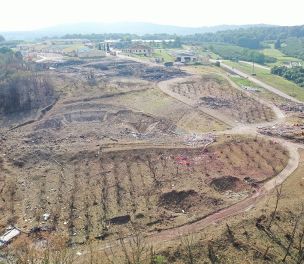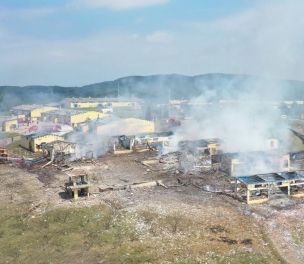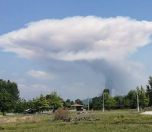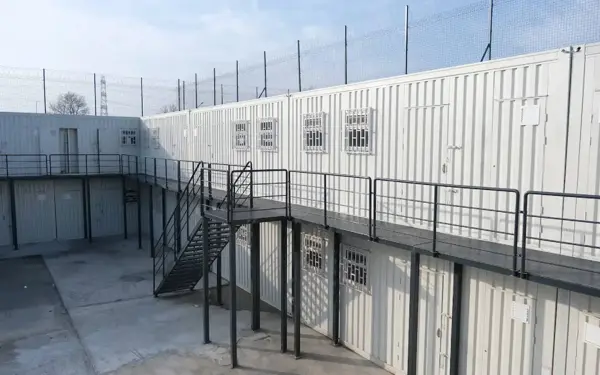* Photo: Geyve District Office of Mufti
Click to read the article in Turkish
Muhammet Seyfi Çanakçı... He lost his life at the age of 53 in the explosion that happened at Büyük Coşkunlar Firework Factory in Hendek, Sakarya on July 3. He was one of the seven people who died in the blast.
Çanakçı started working there after another blast in 2013, which wounded eight people. Living in Geyve with his wife and three children, the eldest of whom is 17, he was laid to rest after his passing.
another blast in 2013, which wounded eight people. Living in Geyve with his wife and three children, the eldest of whom is 17, he was laid to rest after his passing.
Gülşen Uzuner, also a lawyer, is the niece of Çanakçı. She says that her maternal uncle was working in the screening-spraying department of the factory:
"In fact, we did not do anything wrong. The people here were condemned to death because they were working for their daily bread.
"They keep the food on the table in exchange for their labor. But they have now given their lives in exchange for their labor."
Uzuner says that they will keep demanding justice to the end and underlines that the explosion would not have happened if measures had been taken.
'People are used to company's bad conditions'
Uzuner tells bianet the following about her maternal uncle Muhammet Seyfi Çanakçı and the explosion in the factory: "My uncle was working in the company's factory in Geyve. An explosion happened at this factory in 2013 and it was shut down after that. My uncle then started working at the factory in Hendek. Since then, he had been working there.
"After the explosion, I met the colleagues of my uncle at the funeral and for the condolences. All of them said that precautions had not been taken.
"As far as I understand, it comes very natural to the company owners that no safety measures are taken. Because when workers previously raised their objections and concerns, the factory administration said, "If they don't like it, they shouldn't work. They can go and work somewhere else.' This attitude did not change in time despite other accidents.
"Before this explosion as well, workers said that the produced goods were warming up, they made warnings. But the administration or the owners of the factory did not take the necessary measures, trusting in their power.
"That they shut their ears to these warnings cost seven people their lives. There is this feeling of getting used to in the city, like 'This company is like that, its conditions are bad.' It is something that has been the case for a long time and within the knowledge of everyone."
'Factory owners should have been detained first'
After four people, namely the manager, two workmasters and a occupational safety specialist, were arrested on July 6, owners of the factory Ali Rıza and Yaşar Coşkun, a father and son, were detained yesterday (July 7).
Gülşen Uzuner says that the owners of the company should have been taken into custody on the very first day so that they could not spoil the evidence and a more just investigation could be conducted into the blast. She underlines that they are accountable for this:
"People here say, 'It exploded, exploded, exploded... It exploded big.' All in all, the risk of the whole business belongs to the factory owners. They are responsible for taking all occupational safety measures.
"They knew what was happening at the factory, but did not take precautions. They regarded it as a cost item.
"Rather than calling this a negligence, we prefer saying that it was something deliberately done. Because there was a deliberate failure to take precautionary measures. We call this eventual intent in the law.
"Factory owners sit on the very top of the chain of responsibilities and, for that reason, the bosses are the first-degree responsible parties. The bosses should have been taken before these four people were arrested."
'This picture is disrespectful for the grief'
After the blast, the Independent Industrialists and Businessmen Association (MÜSİAD) visited the Coşkunlar company, with their pictures taken while having dinner together. Uzuner says the following about the issue:
"It is very sad that they see this incident as something that caused a material loss for bosses. The picture of that dinner made families sad a lot.
"While we were searching for the dead bodies of our loved ones there, while we could not find them, while there were people waiting at the factory, at hospitals for 48 hours, for 72 hours and while there were people blown into pieces, they were photographed like this... What can be said about this?
"This picture is disrespectful for the grief. You are already grieved, you cannot just erase it. But it is important for us that our sorrow is understood. From the very beginning, the MÜSİAD has shown with its stance and view that it does not stand for the sorrow being understood.That picture has remained as a wound for the families."
'They called for condolences, I wish they hadn't'
Uzuner says that the owners of the factory called her cousins to express their condolences, but they tried to whitewash themselves in the phone call:
"The owners of the factory called my cousin. But that phone call was apparently a bit troubling. When my cousin said that occupational safety measures had not been taken, they told her, 'There already occurred three explosions. One worker each died in those explosions. If he had not liked it that much, he should not have worked in the first place.' I wish that no such condolences had taken place in the first place.
'They have reduced the deceased to numbers'
"In fact, we did not do anything wrong. The people here were condemned to death because they were working for their daily bread. They were keeping the food on the table in exchange for their labor.
"It does not mean that they should risk their lives. The money they get is a small fee when their labor is considered. They do not have to give their lives for that, too. They need to work in safe conditions.
"Now, the wife and children of my uncle are alone. It is very hard. Death is hard, but it is much harder when it happens like this. They are now all alone with their grief. My grandmother has KOAH, she cannot stand the grief of losing her son. Neither can his siblings...
"But we could at least reach the deceased body of my uncle, we laid him to rest in Geyve. Those who could find the bodies of their loved ones consider themselves lucky. It is also sad to talk about this, but we went through this."
As a last word, Uzuner says, "We will keep seeking justice from the very beginning to the very end." (HA/SD)





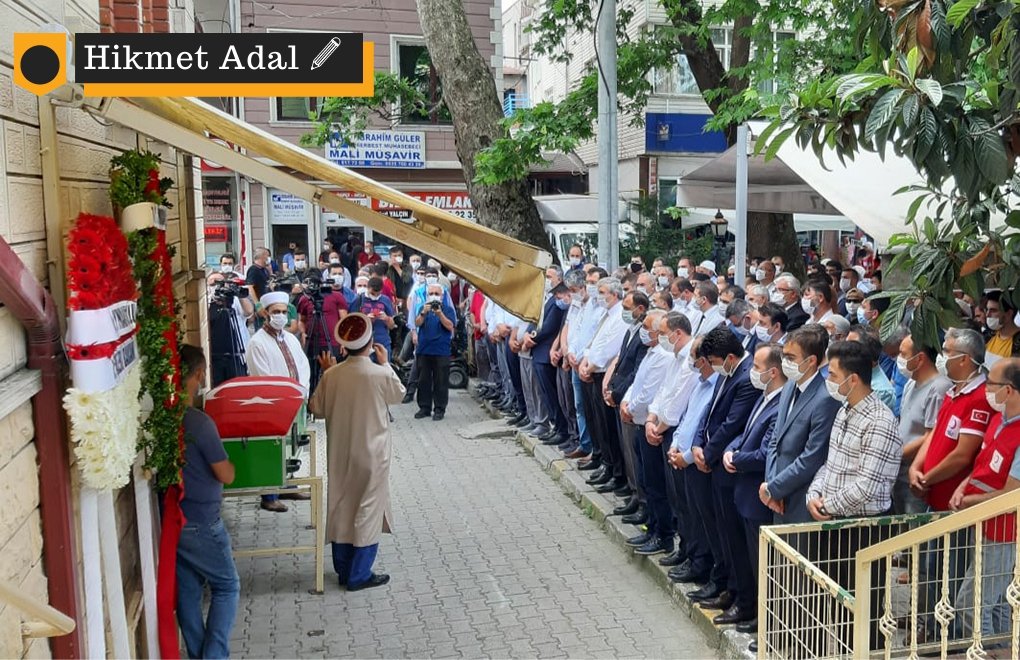
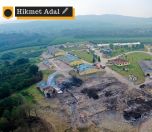
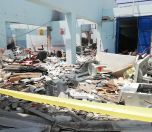
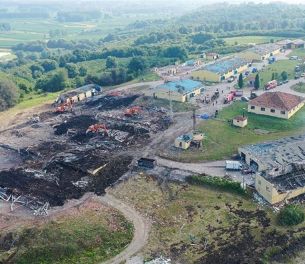
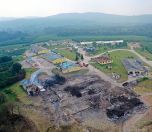
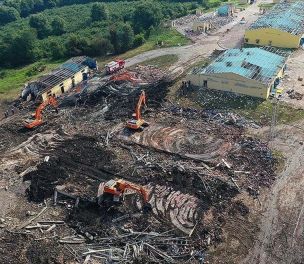
-132.jpg)
